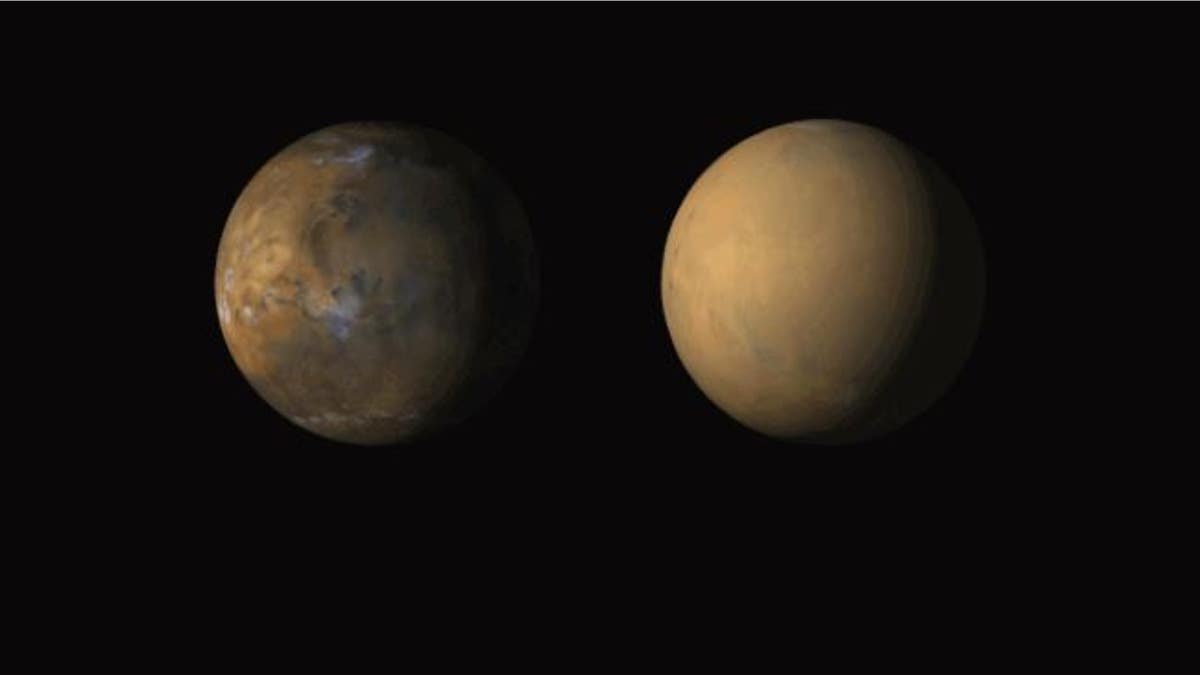Fox News Flash top headlines for March 13
Fox News Flash top headlines are here. Check out what's clicking on Foxnews.com.
The European Space Agency announced that its next mission to Mars will be delayed until 2022 due in part to the coronavirus pandemic.
In a statement posted to its website, ESA, in conjunction with Russian space agency Roscosmos, said the second ExoMars mission, known as the Rosalind Franklin rover, needs additional testing.
There are also concerns that the novel coronavirus, COVID-19, could affect the availability of personnel needed to operate and maintain the rover.
"We have made a difficult but well-weighed decision to postpone the launch to 2022," said Roscosmos Director General Dmitry Rogozin in the statement. "It is driven primarily by the need to maximise the robustness of all ExoMars systems as well as force majeure circumstances related to exacerbation of the epidemiological situation in Europe which left our experts practically no possibility to proceed with travels to partner industries.
"I am confident that the steps that we and our European colleagues are taking to ensure mission success will be justified and will unquestionably bring solely positive results for the mission implementation."

The Mars Color Imager (MARCI) camera onboard NASA's Mars Reconnaissance Orbiter (MRO) shows the typical state of Mars, seen here in May 2018, and what the planet looked like during a planet-encircling dust storm in July 2018. (NASA/JPL-Caltech/MSSS)
NASA UPDATES CORONAVIRUS PLANS AFTER EMPLOYEE TESTED POSITIVE
"We want to make ourselves 100 percent sure of a successful mission," added ESA Director General Jan Wörner. "We cannot allow ourselves any margin of error. More verification activities will ensure a safe trip and the best scientific results on Mars.”
The rover, which had been slated to launch in July 2020, will learn more about the organic molecules that were discovered on the Red Planet in 2018 by NASA's Curiosity rover.
Earlier this week, researchers published a new study that the molecules are "consistent with early life" on Mars.
NASA is slated to launch a new rover to Mars, known as Perseverance, on July 17, 2020. This rover will attempt to detect if there is any fossilized evidence of extraterrestrial beings, in addition to other tasks.
Upon its expected arrival on the Martian surface on Feb. 18, 2021, it will join the still functioning Curiosity rover and the now-deceased Opportunity rover on the Red Planet. Unlike Curiosity or Opportunity, this rover will carry the "first helicopter that will fly on another planet," NASA added.
NASA’s long-term goal is to send a manned mission to Mars in the 2030s.
Fox News has reached out to NASA to see if the plans for Perserverance have been altered in light of COVID-19, which has infected 132,567 people around the world, up 5.6 percent from Thursday. Four-thousand nine hundred forty-seven people have died from the virus.









































